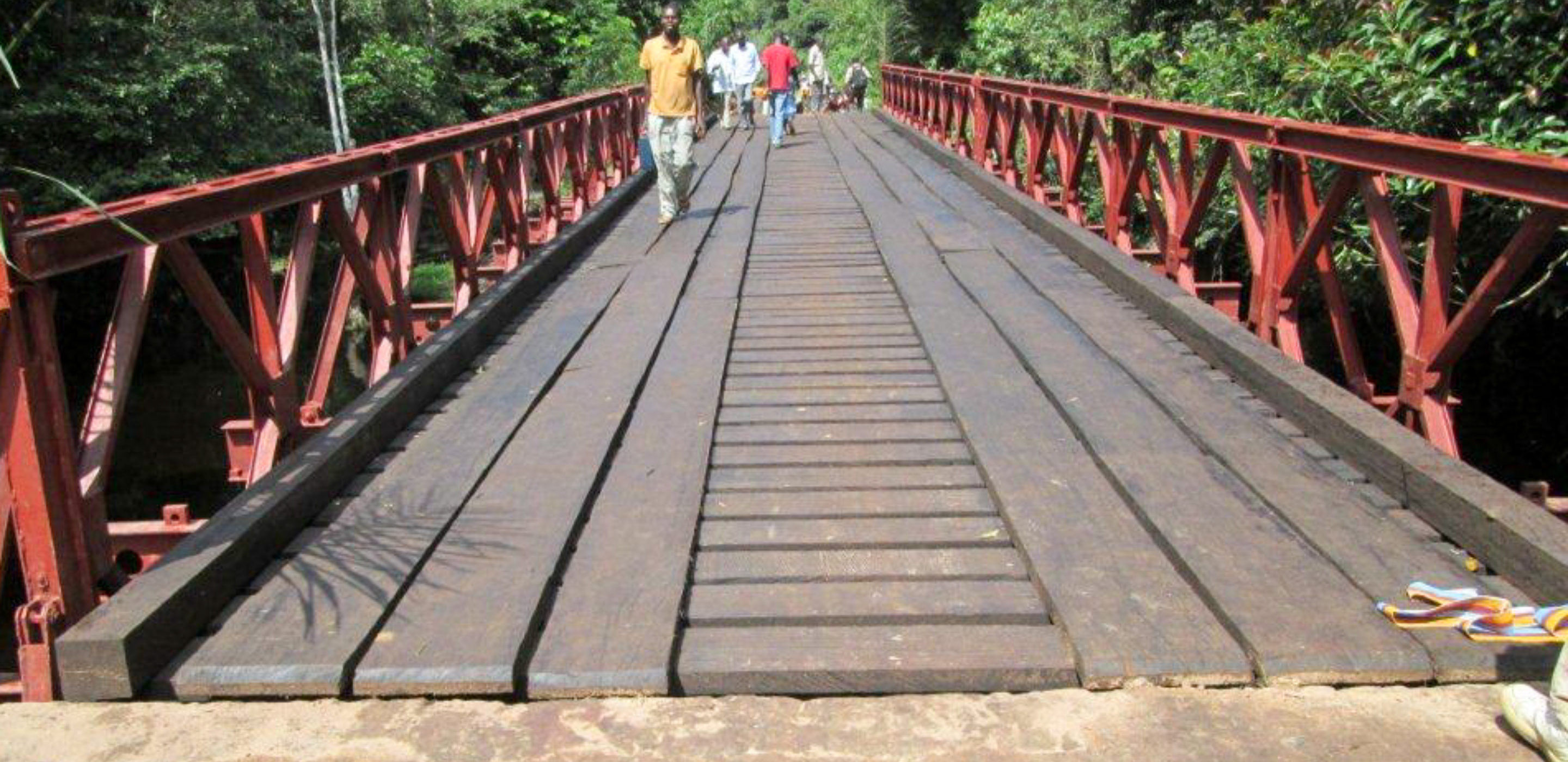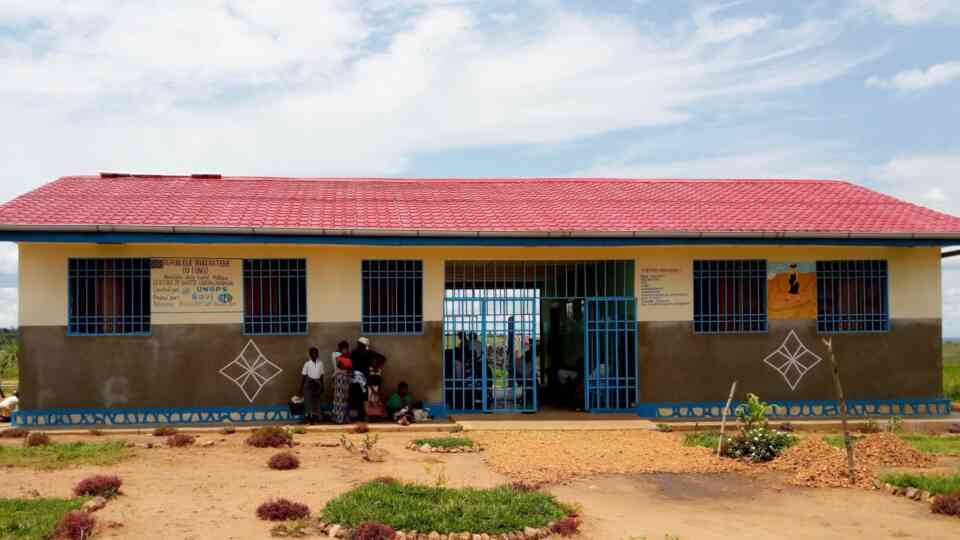The United Nations Office for Project Services (UNOPS)

From footpaths to modern roads in DRC
In a remote area of the Democratic Republic of the Congo (DRC), 1,200 kilometres from the capital Kinshasa, 12 bridges have helped open access to local markets, benefitting some 340,000 people.
These bridges are part of a four-year project to revitalize agricultural production in the north west of the country, through the construction and rehabilitation of key bridges and roads.
Implemented by UNOPS, the $4.2 million project is funded by the food security instrument of the European Commission and ultimately aims to improve food security in Equatorial Province.
In the first stage of the project, UNOPS rebuilt a key 130-km road to connect the towns of Boende and Monkoto, creating nearly 110,000 days of paid work for local people. Years of war and economic collapse had reduced the road to a foot path and forced local farmers to rely on subsistence agriculture. With a population of over 340,000, many living in isolated farms, the area has been particularly affected by a lack of reliable transport infrastructure.


"This is the first time we have seen a vehicle passing through our village in 20 years," said stunned residents when the road was completed in 2012. To ensure lasting results, UNOPS established 21 road maintenance committees, equipping local road authorities with the machinery and knowledge needed to maintain the road in the long-term.
The re-opening of this road reduced travel times by 10 and cut the price of local staples such as rice and ground nut by half. The project also supported the creation of a federation of 1,000 farmers (including 400 women), bringing together 30 existing farmer organizations.
In the second stage of the project, finalized in 2014, UNOPS built 11 priority bridges, to facilitate access where most needed, and rehabilitated one existing bridge along the 130 km road, in collaboration with local authorities.
The construction and rebuilding of the road and bridges could not have come at a better time. In August 2014, three weeks after the last priority bridge was finished, an Ebola outbreak (distinct from the one currently affecting West Africa) was declared in Lokolia, a village nestled along the road, some 60 km from Boende. The newly completed bridges enabled humanitarian actors to provide emergency relief to the population in Lokolia.
"The road and bridges played a crucial role, as access by helicopter would have been very difficult to implement given the remoteness and difficult terrain," explained Christian Fortier, the World Food Programme’s Head of Logistics in DRC, who coordinated the transportation of emergency food and non-food items. The outbreak, which caused 49 deaths, was contained and officially ended on November 15.
For Baudoin Kakule Ndungo, the Provincial Director of the Congolese Roads Authority, "this road is of vital importance at a local but also at a national level, as shown by the response to the Ebola outbreak."
This case study has been produced with the financial assistance of the European Union. The views expressed herein can in no way be taken to reflect the official position of the European Union.
Captions
- Above: Before and after shots of one of the 12 bridges UNOPS worked on as part of this four-year project. UNOPS has built 11 priority bridges to facilitate access where most needed, and rehabilitated one existing bridge, with funding from the European Commission © UNOPS/ Tchagnaou Essotina













